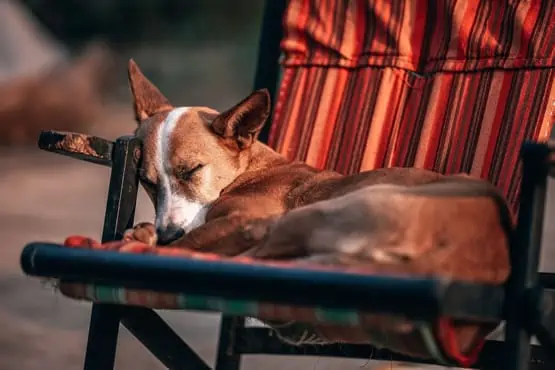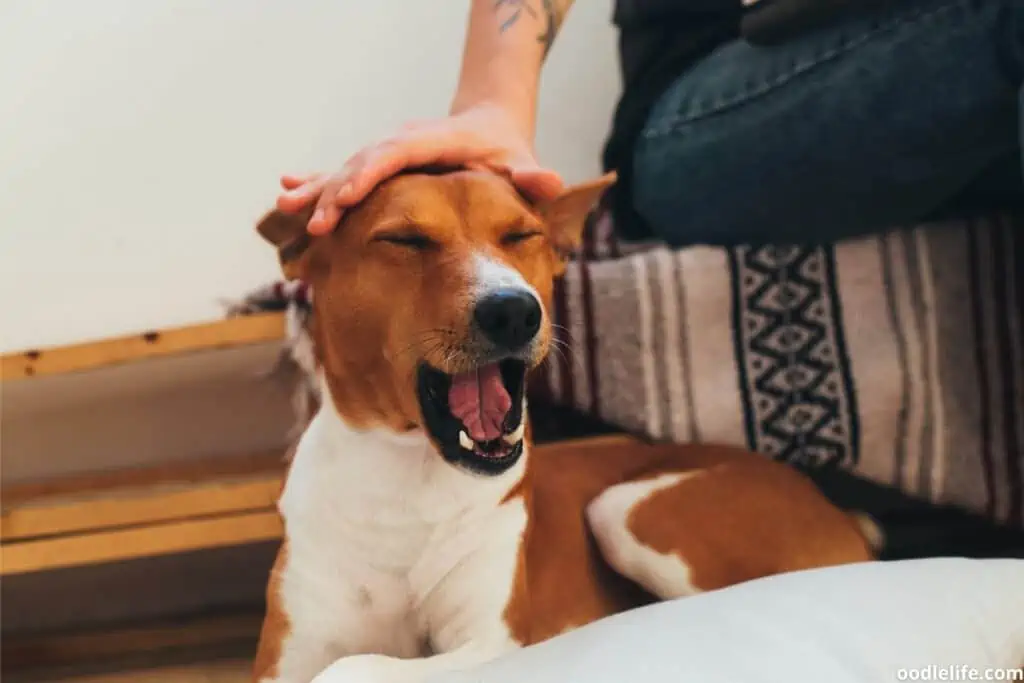Are Basenjis Nocturnal – Basenji Behaviour Patterns
Are Basenjis nocturnal dogs? Given they are famous African lion-hunting dogs… does this mean they will interrupt every night’s worth of sleep?
Here’s a summarised version of the answer. Basenjis can be nocturnal or not based on personality. A lot of Basenjis will like and operate quite well in the dark while others will fear it. Basenjis tend to sleep a lot.
That’s the short version of the answer in case you had to dash off somewhere. There really isn’t a set black-and-white response to that question meaning that, much like human beings, personality or trauma tends to play a part in their being nocturnal or not.

Do Basenjis Like the Dark?
To answer this question, we may have to go back some ways. The Basenji is believed to be the oldest dog breed on the planet. Historically, they would follow and live close to human settlements such as villages and were later domesticated.
Ancient Egyptian records are the earliest documentations of the Basenji which was part of their society. They were trained into hunting dogs due to their agility and inbuilt prey instinct. This means that they instinctively understand the dangers or adventures associated with the African jungles.
Later on, the Pygmies of sub-Saharan Africa adopted the Basenji as a hunting dog which they used, among other things, to hunt lions.
Heredity is a key part of the instinctive behaviour that we or our Basenjis possess. It, therefore, follows that an innate awareness of what lurks in the shadows could be ingrained in the psyche of your Basenji leading them to crave or fear the dark.
That’s one way to look at it but probably you may be more interested in whether or not your Basenji will keep you up at night when you actually want to sleep. Let’s look at this next.

Basenji Sleeping Habits
Though Basenjis are quite active dogs, they also tend to sleep a lot. Some Basenjis can sleep for up to 20 hours in a single day. This is the case for Basenji puppies as well as for older ones. Most of their activity happens during the day.

Though they sleep often, they are hyperactive when they are awake and need to expend a lot of energy so that they settle into sleep easier when night time comes. You need to make sure that you get a lot of exercise in otherwise you will have challenges getting them to settle down.
When you do give them sufficient exercise though, you will find that they will sleep throughout the night without much of an issue at all.
Why Does My Basenji Howl at Night?
On the other hand, you may face challenges with a Basenji that keeps you up at night by howling at odd hours of the night. One of the reasons that this happens is due to the exercise issue which we mentioned in the preceding paragraphs.

Another reason for this is simply that they need to go and potty. Taking them out to do their business will usually be the end of the howling. If they still continue to howl after this, then you may have a totally different issue on your hands and you may need to call in a professional.
They will usually howl when they are confined to a space such as a closed-off room away from you or in a crate. This may be due to the fact that they want to be close to human contact or other dogs in the household. In short, they may just be feeling lonely.
Though Basenjis are known to be independent and aloof, they are also very affectionate dogs and like to be in your proximity and to cuddle. In their African ancestry, they used to sleep as a pack with their backs touching.

This may also have been passed down as a trait they have and when separated from others they may build up anxieties.
To be on the safe side, when your Basenji is not sleeping at night and howling throughout or for large portions of it, consult a professional trainer or breeder who has experience with Basenjis. They will be able to guide you accordingly and direct you on whether you may need to see a vet.
Conclusion
Basenjis are generally not nocturnal in nature. They usually tend to be active during the day and sleep throughout most of the night. If they exhibit nocturnal tendencies, you may need to consult your vet, an experienced Basenji breeder or trainer.